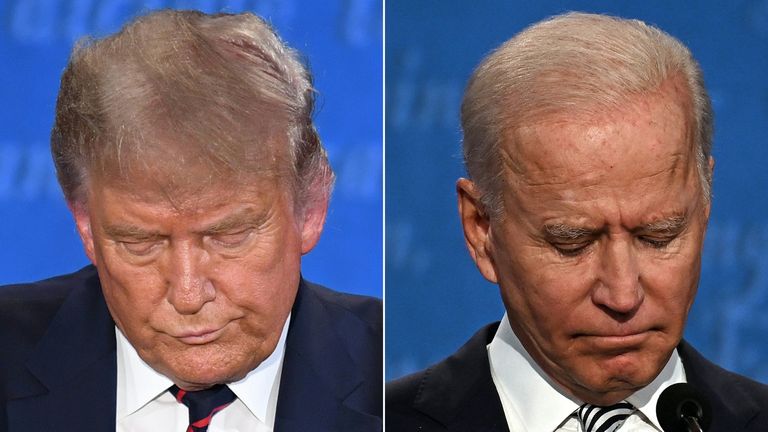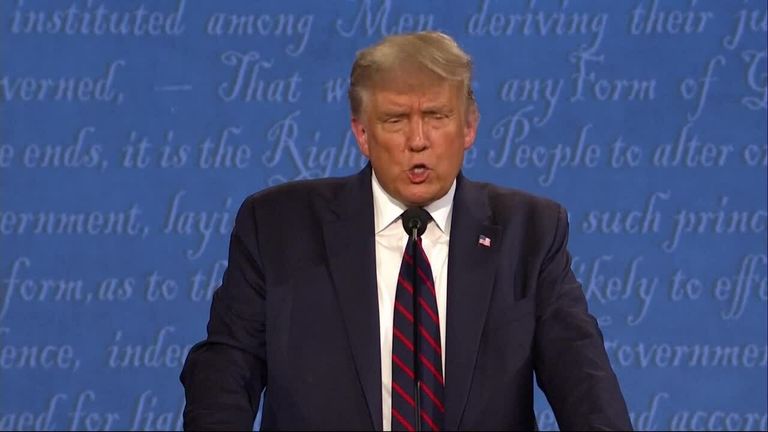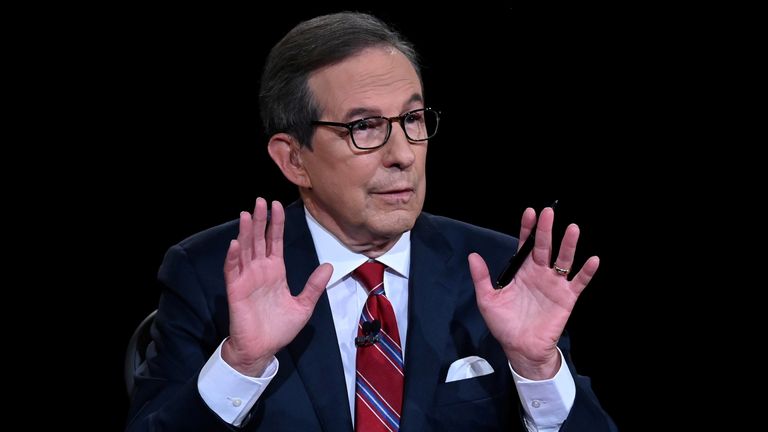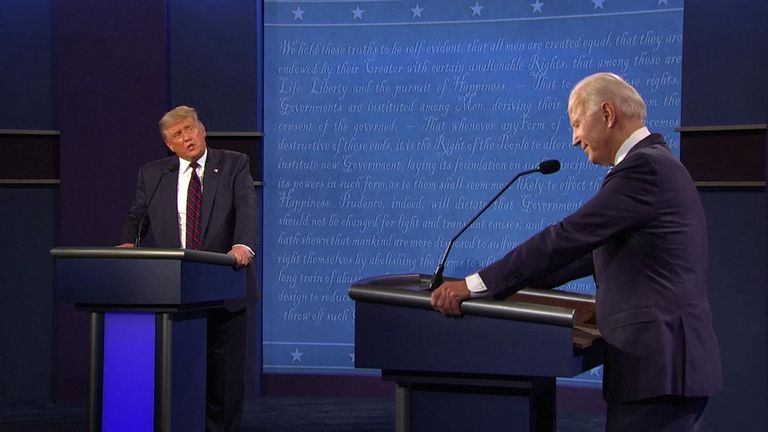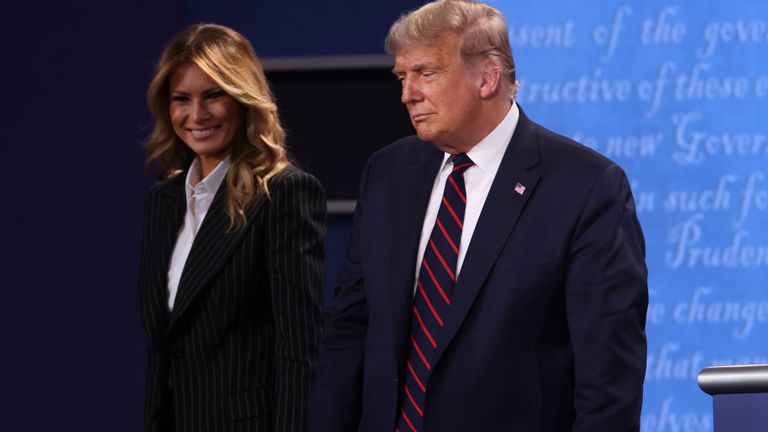It was meant to be a debate. About inspiring people to go out to vote. But it was starved of substance and those deciding whether to bother, would have found little inspiration here.
It was the most anticipated debate in 30 years and yet it may go down as the worst ever.
As they say Stateside, a “hot mess”, chaotic and rancorous.
Donald Trump defied the rules and the moderator from the start. He came out like a bruised street fighter, brimming with far more energy than Joe Biden, but far more rage too.
Mr Biden often struggled for air time – and was slow to override interruptions.
For days, there’s been breathless coverage here of who would win or lose.
But the biggest losers wasn’t even on stage – they were at home watching.
The American public were denied the rigorous discussion of policy they need and forced instead to watch an awful combination of dystopian pantomime cross-talk and playground mudslinging.
Chris Wallace, the moderator, repeatedly struggled to keep the proceedings coherent, reduced at times to pleading with the president to pause and allow his opponent to speak.
It sparked an instant debate about whether future moderators should have the ability to cut candidates’ mics.
I went in thinking 90 minutes with no breaks and no feedback was tough. Little did I know the real endurance test would be for the audience.
It was the perfect illustration of how shambolic, dysfunctional and unedifying American politics has become.
Decency was cast aside. As Mr Biden talked about his dead son Beau, Mr Trump interrupted to attack his living son, Hunter.
But it was his failure to condemn white supremacy that will be replayed for days to come by Democrats.
He was strongest on law and order and laying out his supreme court successes – a string of confirmations and nominations that have been achieved with rapid speed.
That’s a huge gift and motivation for Conservatives. Some consider it so important they won’t care what he said on the stage. In fact 70% of Americans in one poll said the debate wouldn’t sway them.
But going in, I had heard Trump advisers were counselling the president to play to the centre.
But he didn’t pivot – it was a classic play to the base instead.
Even one of the men who’d helped him prepare, Governor Chris Christie, conceded afterwards: “That was too hot. With all that heat, you lose the light. That potentially can be fixed. Maybe, maybe not.”
Mr Trump had a chance to woo moderates and undecideds – a seemingly tiny but potentially critical slither in the swing states, but he didn’t take it.
It didn’t seem like a man trying to gain ground in six battleground states where he trails. His best hope is they weren’t wooed by Mr Biden either.
The former vice president’s performance was mediocre. He didn’t do as well at handling Mr Trump’s interruptions as Hillary Clinton did in 2016.
He wasn’t visionary either. He resorted to calling his opponent a “clown” and telling him to “shut up”.
In normal times, that would be regarded as crossing the line. He looked vulnerable when pressed by Mr Trump to name “law and order” groups who are endorsing him – saved only by Mr Wallace interrupting.
But he will likely be viewed as the more civil, stable and compassionate – repeatedly reflecting on the loss of life through COVID-19, the disproportionate impact on African Americans and the raw racial inequality laid bare this year in America.
As it ended, I watched as Frank Luntz, who for years has run focus groups for Fox News, interviewed undecided voters.
When asked for a word to describe Mr Trump in the debate, all were negative. With Mr Biden, most were positive.
Many thought the former VP would run a better cabinet too. But they weren’t sudden converts either.
If anything this debate seems like it may have convinced the wavering or apathetic to just stay out of the whole process.
Both candidates need to do more to ensure they don’t make the next showdown about themselves.
Maybe Mr Trump appeared to lose more than Mr Biden won, but I’ll be intrigued to see what Ohioans have to say when we ask them.
In reality, the debate may not shift the dial either way. The big question is how many Americans will be willing to endure round two?

